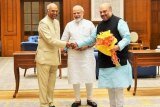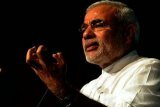Cameron on Mumbai-Bangalore economic corridor, visa bond and UK India ties
On his official blog, PM Cameron said he will meet his Indian counterpart Manmohan Singh to take the Mumbai-Bangalore economic corridor to the next level.
The project, outlined by Cameron in his previous visit to India in February this year, is a collaborated effort between the two countries to build a new economic partnership.
The PM will support British corporates to tender for the feasibility study and establish a Joint Steering Group for the project. This project will offer UK firms the opportunity to play a role in India’s ambitious infrastructure investment plans, according to him.
“I believe this 1,000km project to link Mumbai's financial centre with the technical hub in Bangalore and Pune's manufacturing base in between has huge potential to transform lives in India and put British businesses in prime position to secure valuable commercial deals,” British PM said on his blog.
The Mumbai-Bangalore economic corridor will pass through other cities including Satara, Kolhapur, Belgaum, Devangere and Chitradurga.
According to the Indian government, the project could generate an investment over 300,000 crore-rupees (£31bn) from this corridor and expected to create over two million jobs.
“I'm in no doubt that India is going to be one of the great success stories of this century - a rising power in the world. And I want Britain to be your partner as you grow and succeed,” the PM said.
He also addressed Indians’ concerns around British visa regime by stressing that there are “no limits” on the number of students or entrepreneurs coming to the UK. “We want to attract the brightest and the best to Britain. Whether you're a student, post-grad, entrepreneur or businessman, if you are a genuine student studying at a genuine institution, you will get your visa.”
The PM stressed that the UK is open for business and wants to attract tourists, students, and businessmen.
“I think our challenge is getting that message through and countering the myth that somehow we've closed our borders to Indians. That's simply not the case.”
He further added that the recent proposal on financial bonds which prompted lots of concern in India has been dropped by the British government. “Let me be clear, we've decided not to go ahead with that idea. There won't be financial bonds,” he said.
In his official visit, the British PM will meet trade associations, British corporates in India, Indian PM Manmohan Singh and also visit Kolkata. He will also discuss with the Indian authorities on how the two countries can deepen defence and security ties to tackle global challenges.
More like this
“Returning to India twice in one year reflects my personal commitment to strengthening our relationship,” he added.
There are already over 900 Indian companies in the UK and in 2012, the UK attracted 89 new projects from India generating over 4,100 new jobs. Indian companies are putting more investment into the UK than into the whole of the rest of the EU, according to the PM.
UK’s exports to India are 25% higher in 2013 and the UK is on course to double bilateral trade to £23bn by 2015.
Most read
- 2017: Full list of Indian States, capitals and their Chief Ministers; Nitish Kumar quits and takes oath again as Bihar CM!
- Ram Nath Kovind is 14th Indian President after Pranab Mukherjee. Here's a list of all Indian Presidents since 1950
- List of all the major rivers of India: Names, Origin and Length
- Indian cabinet 2017: Full list of Ministers and their portfolios in Narendra Modi government
- Indian Independence Day Celebrations 2017: 71st Independence Day at London's The Bhavan on Aug 3; Not at Osterley Indian Gymkhana
- Dosa recipe: How to make crispy Paper Dosa and Masala Dosa
- Watch Delhi bride Amisha Bhardwaj’s funky wedding dance video that is now globally viral
- Commonwealth Games 2014: Full list of Indian gold, silver and bronze medal winners
- Bollywood Dream Team 2016: Katrina, Alia, Sidharth, Varun, Parineeti, Aditya Roy Kapur US tour in August
- Recipe: Misal Pav – how to make missal masala, usal and tarri
India News Bulletin by email
More Lead Stories
- 2017: Full list of Indian States, capitals and their Chief Ministers; Nitish Kumar quits and takes oath again as Bihar CM!
- Indian train meals not protected from rats, cockroaches, dust, insects, warn auditors
- IIFA 2017 New York Pics: Bollywood stars ooze glamour at the green carpet
- Paris Couture Week Pics: Sonam Kapoor charms like a princess in bridal wear
- London Grenfell Tower Fire – Key facts and pics












